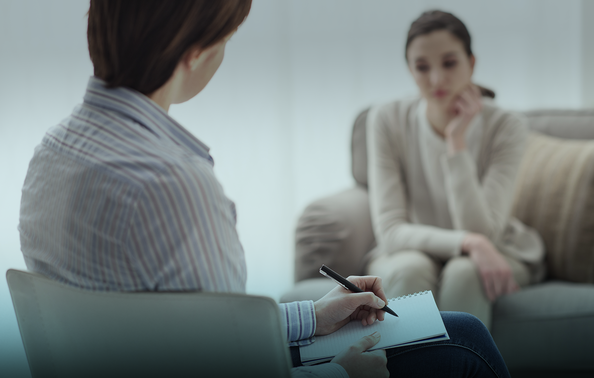First Therapy Session: What To Expect

First Therapy Session: What To Expect
Table of Contents
ToggleIf you’ve never been to therapy, you might be wondering how it goes. What is the first session like? From where do I begin or what do I say? Will the therapist diagnose me immediately? These are all valid questions and this article is written in hopes of getting rid of some of the ambiguity that prevents some people from booking their first therapy session.
The first therapy session can feel intimidating for many reasons. Firstly, this is an experience that one might have never been through before. Also, the therapist-client relationship is unique and unlike any other relationship you might have had in your life. And most importantly, one usually goes to therapy to deal with their innermost fears, anxieties, and traumas. So, even though you might be confident of your decision to start therapy, it’s completely normal and understandable for the first session to be slightly nerve-wracking. Just know that you have already taken the first step towards your mental wellness. You’ve gained self-awareness and realized that you’re struggling and you summoned the strength to reach out for help from a professional. Now, let’s dive into the next step.
Therapists adopt different approaches, which means that the first sessions and the following ones will not be identical when comparing one therapist to another. However, there are some basics that all therapists should have.
The first session is usually a session where you and the therapist get to know each other, where the therapist will introduce themselves and you can ask them about their training, certifications, and their therapeutic orientation. It’s also an intake session, where the therapist mainly obtains as much information as they can from you, including why you sought therapy as well as what you want to get out of it. However, it’s also normal if you don’t know what specific outcomes you want beyond “feeling better.” Your therapist could help you in setting the goals that are appropriate for you.
How should I prepare for my first therapy session?
- If you’re on any medications, it’s useful if you jot down their names and doses as well as how long you have been taking them.
- It might also be helpful if you write down the main areas you’re struggling with or the main reasons why you sought therapy.
- You could also note some questions you’d like to ask your therapist such as the average treatment period or useful books to read that tackle your issue. There are no stupid questions.
- Keep an open mind and use this opportunity to learn more about yourself and work on issues that are negatively affecting various aspects of your life.
- If it’s an online session, you might want to check that your video and audio are working adequately. Also, you should decide on a private, quiet place to attend your session such as your bedroom or car.
What should I expect from the first therapy session?
The therapist should be well-trained in guiding the session effectively to help you reach your goals. Further, you could also tell them that you’re feeling anxious and they’ll help you ease it off. Therapists are understanding and non-judgemental. In the first session, they will usually ask you questions such as:
- What made you seek therapy?
- What are you struggling with? How are you coping with it?
- Were there any recent stressful experiences or major changes in your life?
- What are your current thoughts and feelings?
- Have you ever been to therapy before? If yes, what was it like? What did you like about it and what did you dislike?
- Do you have a family history of mental health?
- Did you notice any recent significant changes in your appetite, sleep or behavior?
The therapist might also start discussing your goals with you as well as the treatment plan. Further, some therapists like to make a therapist-client agreement, where the nature of the treatment is clarified as well as the therapist-client relationship, including the necessary limits. They usually also discuss the recommended frequency of sessions. However, do not expect a diagnosis from the first session as it’s usually not adequately sufficient for a reliable conclusion to be made.
After the first session is over
Try to reflect on what happened and how you felt during the session. Did you feel comfortable with the therapist? Did they listen to you attentively? Did they seem respectful, trustworthy and likable? This is important as the therapeutic alliance, which is the bond between the therapist and client, is one of the most crucial factors that contribute to positive therapeutic outcomes.
Lastly, it’s not unusual to feel tired or drained after the first session. So, plan to do something relaxing after the session such as going home and watching a movie, meditating or even booking a massage appointment. Rest assured, it gets better with time. You’ve chosen to get better and are taking the first steps towards better mental health. This takes a lot of courage so give yourself some credit!
References:
- Ardito, R. B., & Rabellino, D. (2011). Therapeutic alliance and outcome of psychotherapy: historical excursus, measurements, and prospects for research. Frontiers in psychology, 2, 270. https://doi.org/10.3389/fpsyg.2011.00270
- Understanding psychotherapy and how it works. (n.d.). Retrieved from https://www.apa.org/topics/psychotherapy/understanding
- What to Expect in Psychotherapy. (n.d.). Retrieved from https://www.psychologytoday.com/us/blog/two-takes-depression/201301/what-expect-in-psychotherapy







